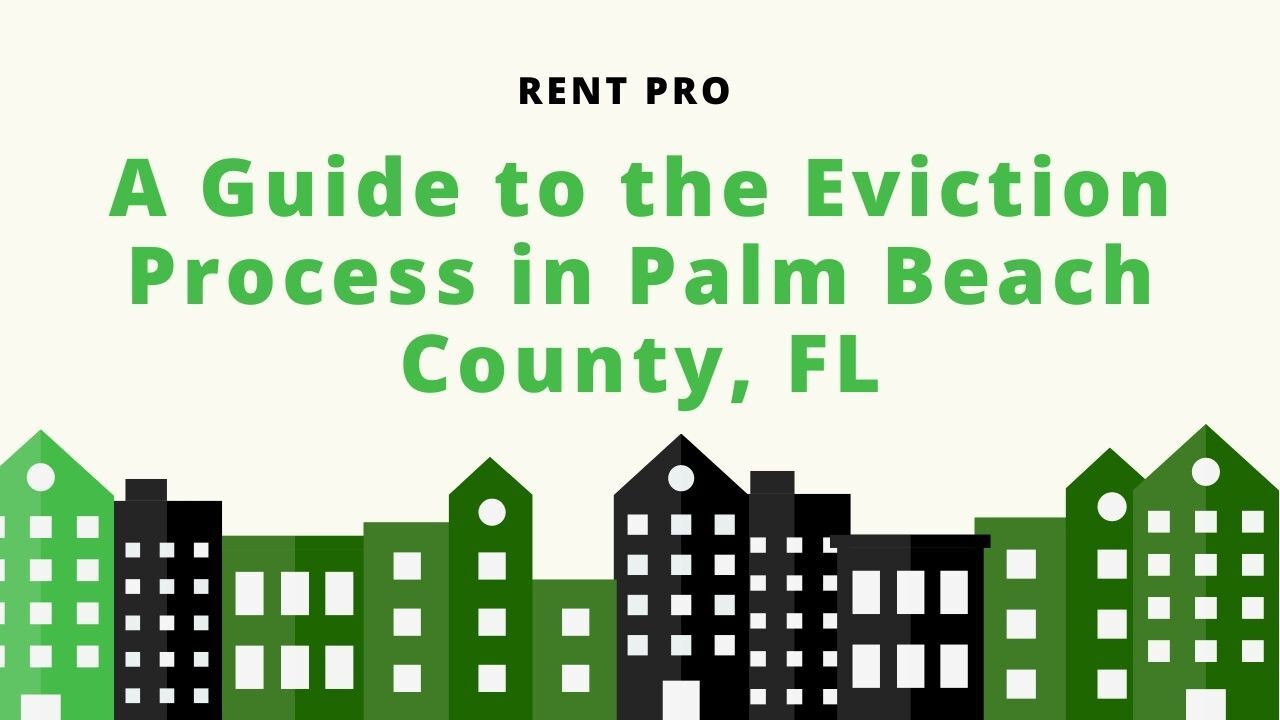Breaking a Lease in Palm Beach County, Florida - Know the Laws

Usually, tenants who sign a lease in Florida intend to stay for the entire period specified in the lease. But things don’t always go as planned and a tenant may need to break their lease.
Now, breaking a lease is akin to breaking a contractual agreement between two parties. Just like a typical contract, there are consequences to unlawfully breaking a lease, no matter the intention behind it. Eviction is not the same as breaking a lease.
As a landlord, you may be able to hold your tenant liable for all the rent remaining under the contract. This is especially true if the reason for breaking the lease isn’t legally justified.
Some legally unjustified reasons for tenants to break their lease include:
- Moving to the new home they bought
- Relocating for a new job or school
- Moving to get closer to family
- Upgrading or downgrading
- Moving in with a partner
- Moving out because of separation or divorce
These reasons are generally not enough justification to let a tenant off the hook. Due to this, tenants have no legal protection against penalties for failing to honor the lease.
Legally Justifiable Reasons for Breaking a Lease in Florida
According to Florida's landlord-tenant law, the following are conditions for legally breaking a lease in Florida if a tenant meets the requirements.
1. Breaking the Lease Using an Early Termination Clause
Some leases contain an early termination clause which a tenant can use to terminate their agreement. Usually, such a clause stipulates the requirements that a tenant must meet before getting off the hook.

One such requirement is payment of a fee, usually equivalent to the rent of 2 months. Another common requirement is the notice period. 30 days is typical.
Once a tenant has met such requirements and moved out, the agreement will be deemed to be terminated.
2. Breaking the Lease to Start Active Military Duty
If your tenant is beginning an active military duty, the Servicemembers Civil Relief Act (SCRA) allows them to break their lease legally. The protection starts from the day they start the active duty and ends anywhere between 30 to 90 days after their discharge.
According to the relief act, a tenant must meet certain requirements before the lease can terminate. They must, for instance, provide their landlord with proof that they intend to be on active duty for at least the next ninety days. Also, they must show their landlord copes of their deployment letters.
Once your tenant has met such requirements, the lease will only terminate 30 days after the next rent period begins. Suppose, for instance, that your tenant delivered the notice on the 13th of April, and the next rent period begins on the 1st of each month. In that case, the earliest the lease will terminate is 1st of June. This means that rent will still be due for the month of May.

In Florida, servicemembers are members belonging to either the armed forces, the activated National Guard, the commissioned corps of the National Oceanic and Atmospheric Administration, or the commissioned corps of the Public Health Service.
3. Breaking the Lease for Health and Safety Code Violations
Every state has minimum standards for rental properties regarding health and safety. If those standards aren’t met, your tenant may have a right to break their lease.
For this reason, it’s important that landlords make necessary repairs in a timely manner. In Florida, landlords have up to 7 days after receipt of written notice to make the repairs. If you don’t, your Florida tenant may have several options to pursue. They include:
- Withholding further rent payments until you’ve made the repairs
- Deducting the cost of the repairs from the next month’s rent
- Reporting you to a relevant government agency
- Suing you in a court of law for damages
- Breaking the lease
According to Florida state law, the following are some things that make a property habitable. (Fla. Stat. Ann. § 83.60.)
- Reasonable protection from criminal harm in the form of locks and window guards
- Sanitary premises, including rodent infestation or removal of insect
- Working bathroom and toilet
- Working carbon and smoke detectors
- Adequate ventilating system
- Working electricity
- Heat during cold weather
If you don’t provide these, you’d be considered to have evicted your tenant “constructively.” Thus, your tenant’s obligations under the lease would cease, as you’d have not met your own under the statewide landlord-tenant act.
4. Breaking the Lease Due to Privacy Violations
Your Florida tenant has a right to live in privacy. In Florida, a landlord may only enter a tenant’s rented unit if they have a legally justified reason. Common reasons for landlord entry include:

- To inspect the property
- To make needed or required repairs
- Under emergency situations
- To show the unit to prospective buyers, lenders, or tenants
- Under court orders
- To serve important notices
In addition to that, you must also notify your tenant beforehand, as well. Under Florida law, landlords must provide their tenants a notice of at least 12 hours prior to entering the rental unit. Although it isn’t specified under the state’s privacy laws, the entry times must also be reasonable.
The only exception to the notice requirement is during times of emergency.
5. Breaking the Lease Due to Landlord Harassment
Landlord harassment can also be a reason enough for a tenant to break free from their lease obligations in Florida. The following are common examples of landlord harassment.
- Sexually harassing your tenant
- Filing a fake eviction against your tenant
- Refusing to accept a rent payment
- Threatening your tenant with physical injury
- Refusing to make repairs
- Cutting off amenities promised in the lease agreement
6. Breaking the Lease Due to Violation of the Lease Agreement by the Landlord
Just like your tenant, you have an obligation to abide by all terms of the lease agreement. If you don’t, by doing such things as altering the terms of the agreement, your tenant may have a legal justification to break the lease. An example of this could be the landlord failing to inform the tenant of where they're keeping the tenant's security deposit.
Landlord’s Duty to Find a New Tenant in Florida
Unlike most other states in the U.S., Florida does not require a landlord to mitigate damages after a tenant moves out.
Bottom Line
When you own a rental property in Florida, it’s important to know the local laws when it comes to both breaking a lease and handling the breaking of a lease by a tenant. If you’re still unsure about the rules and regulations, give RentPro a call! Our team will guide you through the entire process.
Disclaimer: This blog isn’t a substitute for legal advice from a qualified attorney. If you need expert legal advice, kindly get in touch with a licensed attorney or an experienced property management company.
Share this post










